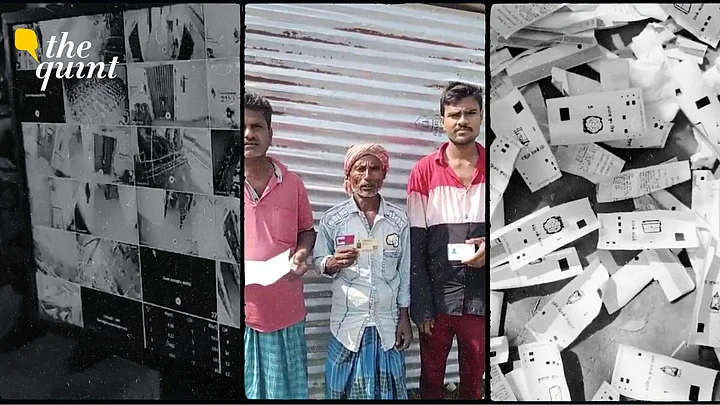In the run up to the declaration of results for the 2025 Bihar Assembly elections, the political temperature in the state spiked sharply following a series of fresh allegations of electoral irregularities raised by the Opposition.
The RJD and CPI(ML) Liberation have accused election authorities of engineered power cuts and CCTV blackouts to suspicious vehicle movements near strong rooms and careless handling of VVPAT slips. These real-time claims have revived older and more structural concerns about Bihar’s Special Intensive Revision (SIR) of electoral rolls.
The Election Commission of India (ECI) and the Chief Electoral Officer (CEO), Bihar, have called these allegations "baseless", "misleading" and "factually incorrect", but the questions surrounding transparency and trust remain.
Fresh Allegations During Polling Week
The most immediate allegations emerged during and just after polling.
In the first phase of voting, the RJD alleged that intermittent power cuts were taking place in booths located in Mahagathbandhan strongholds.
In an incident from Samastipur, videos showed hundreds of VVPAT slips lying scattered on a roadside. The RJD said the visuals exposed a shocking lapse in election material handling and raised fundamental questions about the integrity of the vote.
The Election Commission later clarified that these slips were from a mock poll, not from actual votes cast by the public. Still, it acknowledged the gravity of the lapse by suspending the Assistant Returning Officer responsible and filing an FIR.
The party described the outages as deliberately engineered to slow down polling, framing them as an attempt to suppress turnout in Opposition-leaning areas.
In one instance, the party flagged a case from Muzaffarpur where voters alleged that when they reached the booth for polling, they were told that their vote had already been cast.
Following this video, the Election Commission intervened and the three were then able to vote.
Bihar’s Chief Electoral Officer dismissed many of the other charges, calling them "completely baseless" and asserting that adequate backup arrangements ensured polling continued smoothly.
CCTV Gaps and Strong-Room Suspicion
In Hajipur, the RJD circulated CCTV clips showing what it claimed was suspicious late-night activity: cameras going dark one by one and a pickup van entering and leaving the premises. The party said this raised deep concerns about the security of voting machines and the possibility of tampering.
The district administration countered that none of the CCTV feeds had been turned off deliberately and that the vehicle seen in the footage was on authorised duty. A similar controversy erupted in Nalanda, where the RJD alleged a 30-minute blackout of CCTV cameras in the strong room. Officials again attributed the gap to technical issues like monitor auto-lock or brief feed interruptions.
In Sasaram, the video of a truck carrying boxes used to store EVMs entering a strong room late at night went viral on 12 November. Upon inspection, it was found that the boxes were empty.
The District Administration claimed that the boxes were being brought in to collect EVMs after the counting on 14 November.
Bihar’s Controversial SIR Revision
Behind all of these election-week controversies lies a far more contentious and long-running dispute: the Special Intensive Revision of Bihar’s electoral rolls.
Conducted months before polling, the SIR remains the central pillar of the Opposition’s argument that the election was compromised even before the first vote was cast. CPI(ML) Liberation has been the most vocal critic, with general secretary Dipankar Bhattacharya calling SIR the “biggest attack on the Constitution and voting rights since Independence”.
The RJD has echoed similar concerns, repeatedly claiming that "lakhs" of names were wrongly deleted from the rolls. In one notable instance, the party said that Tejashwi Yadav’s own name was missing from an earlier draft, presenting it as evidence that the process was error-ridden.
